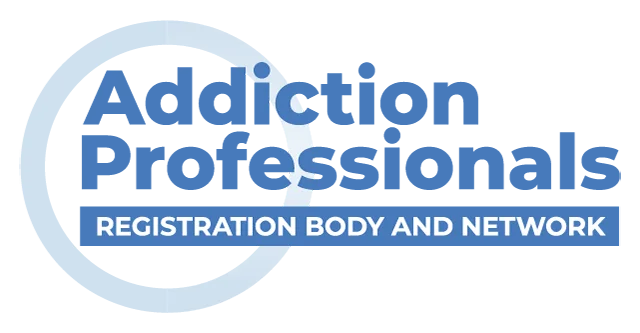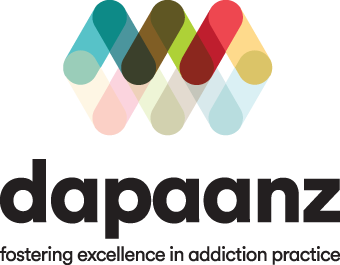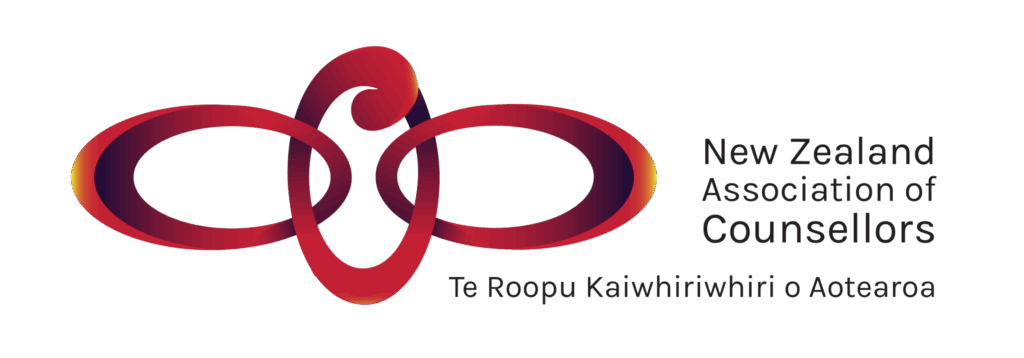- Home
- Mental Health
Mental Health Retreat Thailand
Get mental health support in a safe, serene environment away from your everyday stressors. Our luxury mental health retreat provides the comprehensive care you need to stabilise your condition, address underlying causes, and regain control of your life.
Featured in



How Our Mental Health Retreat Works
When you have reached a point where you can no longer manage the demands of daily life, our inpatient programme provides the intensive, round-the-clock support that outpatient treatment cannot offer.
We recognise that all mental health conditions stem from a combination of trauma and adverse life experiences that have left you feeling overwhelmed and unable to cope.
Unlike weekly therapy sessions or medication adjustments that have not given you the breakthrough you need, our immersive environment allows us to address both your immediate symptoms and their root causes, ensuring genuine healing rather than temporary relief.
Upon arrival, you will receive a personalised treatment plan structured around our Treatment Roadmap, which guides you through progressive phases that stabilise your condition, help you develop effective coping strategies, and prepare you for a confident return to daily life.
In our calming environment, far away from people, places, and situations that contribute to your condition, you will find the intensive support and expert care needed to break free from your mental health crisis and build the stable, fulfilling life you deserve.

Helen Wells, Clinical Director
Certified Trauma Professional (PACFA)
Common Mental Health Disorders We Address
PTSD and Trauma
Trauma and PTSD can arise from one-time catastrophic events or prolonged adverse experiences. Without proper treatment, they may lead to depression, anxiety, and long-term behavioural challenges that affect daily life. Learn more.
Anxiety
Anxiety disorders create overwhelming worry and fear that disrupt daily life. Situations like work, school, or social gatherings may trigger panic attacks. Without support, anxiety often worsens and takes a toll on wellbeing. Learn more.
Depression
Depression is marked by feelings of hopelessness, disinterest, and low self-worth. It’s one of the common mental health disorders and can be dangerous. Fortunately, it can improve with therapy and wellness practices. Learn more.
Executive Burnout
Executive burnout develops from prolonged stress, leaving professionals drained. Often unnoticed until it becomes severe, it requires intervention to address underlying issues and establish self-care practices. Learn more.
Mood Disorders
Mood disorders, like bipolar disorders, involve intense mood changes linked to many factors. If left untreated, they can cause loss of interest in daily life, lead to self-harm, and in severe cases, result in suicidal thoughts. Learn more.
Insomnia
Chronic insomnia is often linked to mental health conditions or substance use. By addressing these root causes and making lifestyle and behavioural changes, sleep quality can often improve without relying on medication.
Personalised Mental Health Retreat at The Dawn Thailand
Your journey at The Dawn begins with a personalised treatment plan tailored to your specific mental health challenges and guided by our Treatment Roadmap. Together, we will work through carefully structured phases that stabilise your symptoms, heal underlying trauma, and equip you for sustained mental wellness.
Comprehensive Assessment
and Stabilisation
Weeks 1 to 2
We begin with a thorough psychological evaluation to understand your mental health history and current symptoms.
Our clinical team uses this comprehensive assessment to create a treatment plan specifically tailored to your unique needs and recovery goals.
If substance use is also present, we provide integrated dual diagnosis treatment to address both conditions simultaneously.
Managing Your Presenting Symptoms
Weeks 2 to 5
Next, we focus on stabilising your condition and equipping you with practical skills to manage daily challenges.
Therapies include:
- Cognitive Behavioural Therapy (CBT) to change destructive thought patterns
- Dialectical Behaviour Therapy (DBT) to improve emotional regulation skills
- Mindfulness practices to develop present-moment awareness and stress management
- Transcranial Magnetic Stimulation (TMS) for treatment-resistant depression and other conditions (optional)
Your dedicated therapist will closely monitor your progress and adjust your treatment plan as needed to ensure optimal results.
Addressing
Root Causes
Weeks 5 to 12
This phase is critical for lasting recovery.
We explore and resolve the underlying trauma and adverse experiences that have contributed to your mental health condition.
Through trauma-informed therapies like Trauma-Focused Cognitive Behavioural Therapy (TF-CBT), we work to heal these deep-rooted issues, laying the groundwork for lasting mental wellness.
How long is mental health retreat?
−The average stay is around 60 days, though your treatment duration will depend on several factors, including the severity of your mental health condition and how you respond to treatment.
If you are dealing with complex trauma, multiple co-occurring conditions, or severe symptoms that have made daily life unmanageable, a longer stay of approximately 90 days allows us to provide more comprehensive care and better prepare you for enduring mental wellbeing.
Once we complete your assessment, we will work together to determine the ideal treatment length for your situation.
How does mental health retreat work?
+Our trauma-informed treatment recognises that mental health conditions often stem from deeper psychological wounds like unresolved trauma and adverse life experiences.
To ensure lasting stability, we help you manage your presenting symptoms while also addressing any underlying causes that contribute to your mental health issues.
Our treatment combines evidence-based Western therapies like CBT, DBT, and TMS with holistic Eastern practices like mindfulness, yoga, and massage.
For clients who also struggle with substance use disorders, we provide dual diagnosis treatment to tackle your mental health issues alongside your addiction.
This comprehensive approach addresses your mental, emotional, and physical wellbeing, leading to profound transformation on every level.
Who is this mental health retreat for?
+Our mental health retreat programme is designed for individuals who:
- Are no longer able to function in daily life due to their mental health condition.
- Feel their lives have become completely unmanageable and overwhelming.
- Have not achieved the desired results from outpatient treatment, therapy sessions, or medication adjustments.
- Are self-medicating with substances to cope with their mental health issues, leading to co-occurring disorders.
- Require intensive, round-the-clock support that cannot be provided through weekly appointments.
- Need a supportive and more relaxed environment after being discharged from a psychiatric ward.
- Are experiencing a mental health crisis that requires immersive, residential care to address both presenting symptoms and underlying trauma.
How is The Dawn’s mental health retreat different to others?
+Several factors set The Dawn apart from other mental health treatment facilities:
- Asia's only CARF-accredited centre: This prestigious international accreditation is granted only to premier treatment centres that consistently demonstrate:
- evidence-based therapeutic approaches
- person-centred, trauma-informed care
- adherence to the highest international safety and care standards
- Highly personalised approach: Rather than using generic treatment protocols, we conduct comprehensive assessments of your mental health history and personal goals to create a completely tailored treatment plan. Our Treatment Roadmap then guides you through carefully paced phases that support lasting healing without overwhelming you.
- Comprehensive treatment: We combine innovative therapies like TMS (Transcranial Magnetic Stimulation) with evidence-based Western psychotherapy and scientifically-backed Eastern wellness practices to address all aspects of your wellbeing.
- Expert clinical team: You will be supported by experienced mental health professionals with training from the UK, US, and Australia. Our low staff-to-client ratio ensures dedicated attention and care throughout your entire treatment journey.
- Therapeutic environment: Our luxury mental health retreat provides a tranquil setting far away from daily stressors, enabling you to focus completely on healing without distractions.
- Ongoing support: Our Free Lifetime Aftercare Programme provides continued guidance to help you maintain your mental wellness long after returning to your daily life.
- Exceptional value: All of this is available at significantly lower costs than comparable Western facilities while maintaining the same clinical standards.
What it’s Like to Stay at Our Luxury Mental Health Retreat in Thailand
Your days at The Dawn blend focused therapy sessions with time to rest and recharge. You will work through your mental health challenges, take part in mindfulness and movement activities, and unwind in your private room nestled in nature, with access to wellness facilities when you need them. Here’s an example of what a typical day looks like at our mental health retreat:
| 07:00: | Group Exercise |
|---|---|
| 08:00: | Breakfast |
| 09:30: | Process Group |
| 11:00: | Group Therapy / Group Activity |
| 12:00: | Lunch |
| 12:45: | Focus Group |
| 14:30: | Individual Therapy / Fitness Training / Mindfulness Meditation / TMS (optional) |
| 18:00: | Dinner |
| 19:00: | Wind Down / Massage |
| 20:00: | Daily Journal Time |
| 21:30: | Bedtime |
Holistic Treatment from World-class Clinicians
We uphold rigorous standards in recruiting our mental health professionals.
You will work with skilled clinicians who have received training in the UK, US, and Australia, bringing extensive expertise in trauma therapy and mental health treatment to support your healing journey.
Beyond evidence-based therapeutic approaches, you will engage in scientifically-backed wellness practices like mindfulness, yoga, and massage that have been proven to enhance both psychological and physical wellbeing.
This integrated approach addresses all aspects of your wellbeing, establishing the groundwork for profound and lasting recovery.
A Safe, Luxury Setting Designed for Recovery
When battling severe mental health challenges, staying in your usual environment exposes you to the same stressors, relationships, and situations that contribute to your condition.
Our luxury mental health retreat offers a tranquil riverfront setting outside Chiang Mai, removing you from these daily stressors and pressures.
You will stay in your own private, resort-style accommodation with access to comprehensive wellness amenities.
This peaceful sanctuary enables you to focus entirely on your recovery without distractions.
Lasting Support After You Leave
Once you return home, our free Lifetime Aftercare Programme provides bi-weekly online group sessions, giving you ongoing access to professional guidance and peer support from others who understand your mental health challenges.
You will also join our alumni programme, connecting you with individuals who have walked this path and remain dedicated to helping each other maintain their mental wellness and continue thriving in their daily lives.
Why Choose the Dawn for Mental Health Retreat
Asia’s only CARF-accredited centre
CARF is the gold-standard for U.S. treatment centres, ensuring adherence to the highest international standards of client care, safety, and evidence-based treatment tailored to your needs.
Dedicated trauma programme
Our Trauma Programme includes trauma-focused therapies to help you safely process adverse life experiences through individual therapy, group work, and somatic treatments designed specifically for trauma recovery.
Specialised treatment for dual diagnosis
Our integrated approach treats both mental health conditions like anxiety, depression, or PTSD and co-occurring substance use disorders, helping you build a stronger foundation for long-term wellbeing.
World-class care at 1/3 the price
Get the same standard of care you would expect from top Western facilities at a fraction of the price. Our lower cost allows for longer stays, giving you the time and space needed for deeper, more sustainable recovery.
Highly personalised treatment plans
Your customised treatment plan, guided by our Treatment Roadmap, is based on comprehensive assessments and your recovery goals, giving you the best chance at lasting recovery.
Blend of Western therapy & Eastern wellness
We combine Western therapies like CBT, DBT, and TMS with holistic Eastern practices like mindfulness, yoga and massage, all scientifically proven to help you manage stressors and build healthy coping skills.
Transcranial Magnetic Stimulation (TMS)
We are the only non-hospital facility in Thailand offering TMS as an option, an FDA-approved treatment that is highly effective for treatment-resistant depression when traditional medications have not delivered results.
Why Choose Thailand for a Mental Health Retreat
The Dawn
USA
UK
World-class clinicians
Treatment of co-occurring disorders
CARF accreditation
Dedicated trauma programme
Escape triggers far from home
The Dawn
USA
UK
World-class clinicians
Treatment of co-occurring disorders
CARF accreditation
Dedicated trauma programme
Escape triggers far from home
How does the quality of care compare to the mental health retreats in the US or UK?
−You can trust that your care meets the same rigorous standards as high-quality mental health retreats in the US and UK.
As Asia's only CARF-accredited centre, we adhere to the strict guidelines for clinical care and safety that govern top-tier treatment centres in the US. This means we use evidence-based treatment methods tailored to your individual needs rather than generic treatment protocols.
Our track record speaks for itself: We maintain a 90% programme completion rate, with 96% of our clients recommending The Dawn to others.
This exceptional standard of care comes at significantly lower costs than comparable Western facilities, allowing you to invest in longer, more comprehensive treatment without compromising on quality.
Is my mental health retreat in Thailand covered by insurance?
+Yes, The Dawn accepts insurance from leading healthcare providers worldwide for mental health retreat.
Coverage varies depending on your specific insurance plan and provider, so we recommend consulting directly with your insurance company about their coverage for international mental health treatment to ensure all your questions are answered prior to beginning treatment.
Many clients find that even with partial coverage, the significantly lower costs of treatment in Thailand compared to Western facilities can make comprehensive mental health retreat more accessible and affordable than local options.
Is language a barrier in Thai mental health retreats?
+Not at The Dawn. All therapy sessions and daily activities are provided in English. Our team speaks fluent English and includes licensed professionals trained in the US, UK, and Australia, so you will never have to worry about being misunderstood or lost in translation. Most of our clients are from the US, UK, and Australia, creating a familiar cultural environment for your recovery journey.
Inpatient vs Outpatient Mental Health Retreat
An inpatient mental health retreat removes you from the stress of your day-to-day life and provides intensive support that outpatient treatment simply cannot match. At The Dawn, all aspects of your care, including therapy sessions, medical support, wellness activities, and peer community are available in one location, allowing you to focus completely on your mental health recovery without logistical complications.
Inpatient – Removes you from the environment that contributes to your mental health struggles, giving you the space to heal without constant stressors undermining your progress.
Outpatient – Keeps you exposed to the same stressful environment and relationships that contribute to your condition while trying to manage treatment alongside work and personal responsibilities.
Inpatient – Accelerates your recovery through intensive daily treatment combining individual therapy, group sessions, TMS, and wellness practices, helping you see improvements faster.
Outpatient – Slows your progress significantly with only weekly or bi-weekly sessions, requiring exceptional self-discipline to maintain appointments during your most vulnerable periods.
Inpatient – Provides convenient access to all services in one location, eliminating the stress of coordinating multiple appointments.
Outpatient – Requires you to coordinate care between multiple providers across different locations, adding logistical stress when you are already struggling to cope.
Inpatient – Connects you with others facing similar challenges through group therapy, reducing isolation and reassuring you that you’re not alone in your struggles.
Outpatient – Restricts you to individual appointments, missing the support that comes from connecting with others facing similar mental health challenges.
Stories of Hope and Healing
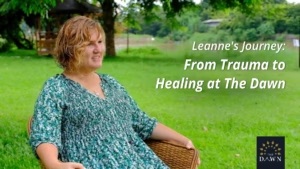
Leanne's Journey: From Trauma to Healing at The Dawn
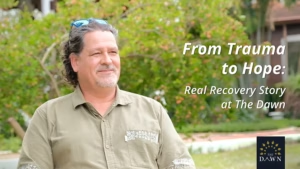
From Trauma to Hope:
Real Recovery Story at The Dawn
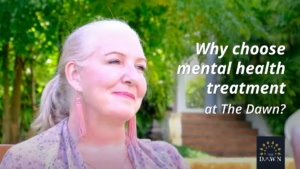
Why choose mental health treatment at The Dawn?
We accept all major international insurance plans





START LIVING THE LIFE YOU DESERVE – GET MENTAL HEALTH HELP NOW
Mental Health Retreat Thailand Articles
Standards You Can Trust
We are proud members of these major international addiction associations, reflecting our commitment to ethical, evidence-based treatment and continuous improvement.

